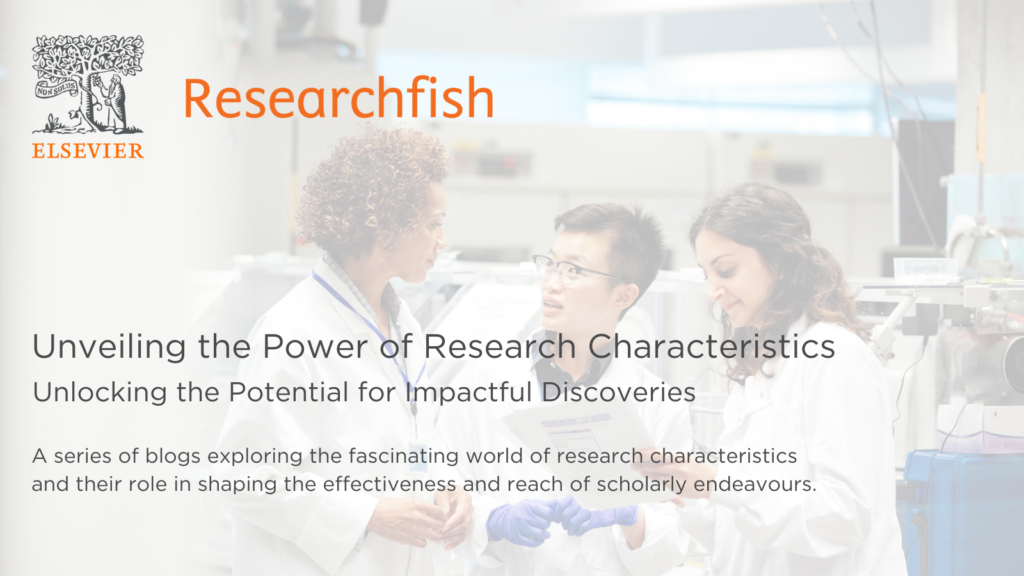
Welcome back to our ongoing series on research impact. In our previous blog posts, we discussed the significance, reach, and tangibility of research impact. Today, we turn our attention to another critical characteristic: “Novelty.”
Sean Newell
4: Novelty
Novelty refers to the originality and innovative nature of research findings, methodologies, or approaches. Join us as we delve into the importance of novelty in research impact and how it sparks new ideas, advancements, and transformative change.
Definition and Explanation
Novelty, as a characteristic of research impact, highlights the fresh and original contributions that research makes to existing knowledge, practices, or theories. It involves pushing the boundaries of understanding, challenging conventional wisdom, and introducing innovative perspectives or methodologies. Novelty fuels curiosity, drives intellectual progress, and fosters breakthroughs that have the potential to shape the future.
Examples that illustrate the importance of novelty in research impact:
1. Scientific Novelty: The discovery of graphene, a single layer of carbon atoms with exceptional properties, exemplifies scientific novelty. This breakthrough research not only expanded our understanding of material science but also opened up new possibilities for applications in areas such as electronics, energy storage, and medicine.
2. Technological Novelty: The development of the CRISPR-Cas9 gene-editing technology revolutionized the field of genetic engineering. This ground-breaking research introduced a precise and efficient method for editing DNA, offering tremendous potential for advancements in medicine, agriculture, and biotechnology.
3. Methodological Novelty: Research that introduces novel methodologies or approaches can have a significant impact on various disciplines. For instance, the emergence of machine learning algorithms for data analysis has transformed fields such as artificial intelligence, healthcare, finance, and marketing, enabling new insights and applications.
4. Social Novelty: Research that challenges prevailing social norms and introduces new perspectives can have a profound impact on society. For example, studies that examine and address issues of gender inequality, racial discrimination, or social justice contribute to shifting paradigms, advocating for change, and promoting a more inclusive and equitable society.

Challenges and Considerations
Embracing novelty in research impact comes with challenges:
- Navigating the balance between novelty and practicality, ensuring that innovative ideas can be effectively implemented and have practical applications.
- Overcoming resistance to change and the inertia of established paradigms, as novel research may challenge existing theories or practices.
- Balancing the need for novelty with the importance of building upon existing knowledge and leveraging previous research contributions.
Enhancing Novelty
To enhance the novelty of research impact, researchers and funders can consider the following strategies:
- Foster interdisciplinary collaborations that bring together diverse perspectives and expertise, encouraging the cross-pollination of ideas.
- Support early-career researchers and innovative projects that have the potential to break new ground and challenge established norms.
- Encourage a culture of intellectual curiosity, risk-taking, and experimentation within the research community.
Summary
Novelty is a key characteristic that drives research impact, fuelling innovation, and sparking transformative change. By pushing the boundaries of knowledge and introducing original perspectives, research has the power to reshape our understanding, practices, and future advancements.
Join us in our next blog post, where we will continue exploring another characteristic of research impact: “Durability.”
Other blog posts in this series
- Introduction. Unveiling the Power of Research Characteristics: Unlocking the Potential for Impactful Discoveries.
- 1: Significance. Unveiling the Significance of Research Impact: Driving Change and Advancements
- 2: Reach. Reaching Far and Wide: Exploring the Reach of Research
- 3: Tangible Impact: Unveiling the Power of Research in Making a Difference
- 5: Sustaining Impact: Exploring the Durability of Research Impact
- 6: Collaborative Synergy: Unleashing the Power of Collaboration in Research Impact
- 7: Transferring Knowledge: Exploring the Transferability of Research Impact
- 8: Engaging for Impact: The Power of Stakeholder Engagement in Research
- 9: Driving Change: The Crucial Role of Policy Relevance in Research Impact